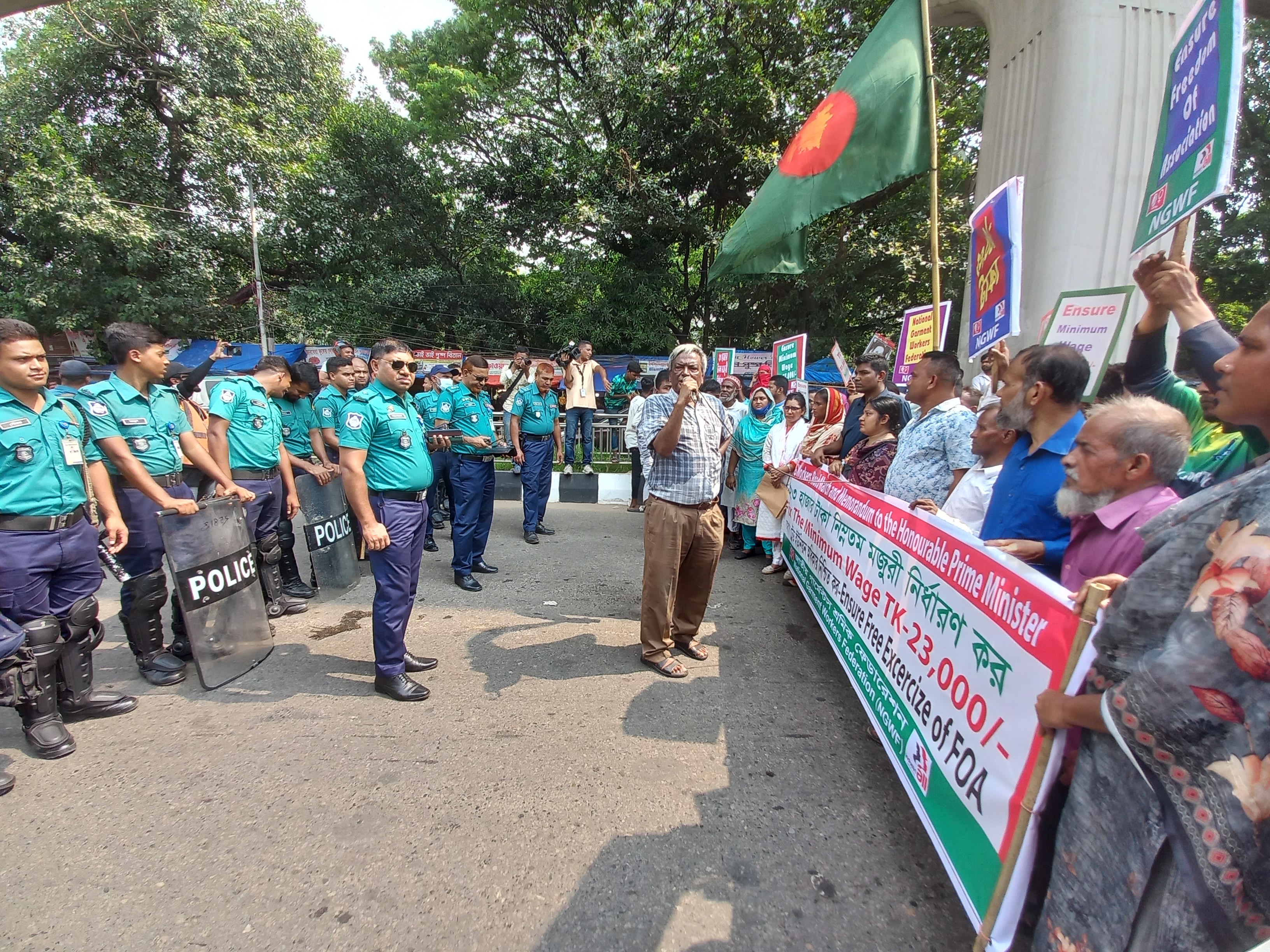
CCC condemns repression against workers protesting for higher wages in Bangladesh
Clean Clothes Campaign strongly condemns the violent repression of garment workers demanding a wage increase to 23,000Tk and calls on the government of Bangladesh to immediately ensure that workers’ right to protest is respected. We stand in solidarity with all those mourning the loss of Rasel Hawlader, a garment worker shot while peacefully demanding 23,000Tk as the new minimum wage for the RMG sector in Bangladesh.
As we issue this statement, it has been confirmed that at least one more person lost their life in the unrest, although the worker’s identity and specific details surrounding this incident remain pending clarification. It is clear that worker repression during this year’s wage-setting process is reaching unprecedented levels. While workers risk their lives to voice their demands, brands sourcing from Bangladesh refuse to support the workers' demand in the wage negotiations, therefore legitimising the undemocratic environment in which the wage revision takes place.
Protests in Gazipur started last week after the Bangladesh Garment Manufacturers and Exporters Association (BGMEA) put forward its proposal for the new minimum wage in the garment sector to be set at 10,400Tk (95$), less than half of the trade unions’ demand of 23,000Tk ($208). The employers’ meagre proposal came as a painful indication that workers’ demands have once again been ignored in the Bangladeshi wage-setting process, despite their alignment with the criteria prescribed under the Bangladesh Labour Act and the ILO Convention 131 on Minimum Wage Fixing.
The protests in Gazipur are now spreading across other areas in Bangladesh and can only be seen as a consequence of the desperate need for a family-supporting wage and a lack of faith in the wage revision process itself. The killing of Rasel Hawlader is an extreme example of the attempts to quell the protests so far. CCC fears a repetition of the heavy-handed retaliation against protesting workers that took place in Bangladesh five years ago during the previous minimum wage revision.
We call on the government of Bangladesh to immediately put an end to the violence used against workers, who have a right to demonstrate under the Bangladeshi law. We are witnessing history repeating itself, as the playbook for the suppression of workers’ demands, which was successful five years ago, is being used again this year by the government apparatus and the BGMEA alike. Furthermore, we call on the government of Bangladesh to stop politicising the wage protests and instead acknowledge the unrest as a direct reaction to the BGMEA’s outrageous wage proposal, which would simply trap workers in poverty for another five years, regardless of the political landscape in Bangladesh.
Brands sourcing from Bangladesh have an undeniable role in the recent developments as well. Most refused to put out a public statement in support of trade unions’ demand for 23,000Tk, ignoring several requests to do so from trade unions and CCC. Despite their codes of conduct and commitments to transparent and inclusive wage-setting mechanisms, most failed to ensure that workers’ voices were heard during the wage negotiations.
We, therefore, call on all brands sourcing from Bangladesh to immediately condemn the violence used against workers demanding a minimum wage of 23,000Tk, confirm their commitment to fair pricing, call for the demands of workers and independent trade unions to be heard by the Wage Board and ensure that workers’ right to freedom of association is protected.
We stand in solidarity with the friends and family of Rasel Hawlader, and the relatives of the worker whose identity is yet to be confirmed. We stand in solidarity with all workers putting themselves at risk while executing their right to freedom of association.